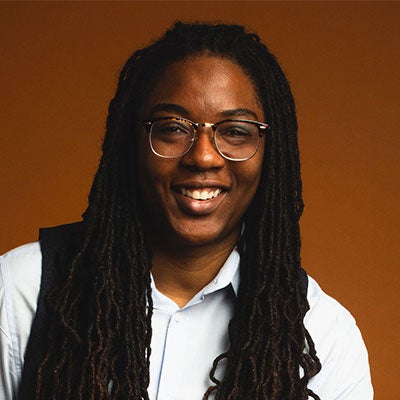Ensuring equitable health outcomes requires that the design, development, implementation, and dissemination of technology is culturally and contextually informed and guided by people’s lived experiences through community-engaged science. The pandemic exposed and, in some cases, widened existing gaps for historically marginalized and underrepresented communities and inequities exist across all layers of the healthcare system – from access and use of technologies to policies and procedures. Addressing health equity issues among historically marginalized communities requires innovative collaborations across diverse disciplines (medicine, public health, nursing, engineering, social sciences, humanities, liberal arts, policy) and a global perspective. The goal of this workshop is to bring together scientists and clinicians working on health equity research to facilitate new collaborations and identify a shared research agenda across disciplines. The workshop will cover a broad range of topics in health equity including: 1) accessible healthcare technologies, 2) racial/ethnic/social determinants of health, 3) fairness in machine learning, 4) explainability in machine learning.
Details
Workshop Date: April 23, 2024, 9a - 5p, reception and poster session from 5p-7p
Venue: BioScience Research Collaborative (BRC) at Rice University Room 280 | 6500 Main Street, Houston, TX 77030
REGISTERRegistration will close on April 19, 2024. We are currently limiting registration to the first 100 people who sign up. Only a limited number of seats are left so register today!
Invited Speakers

Maria Monica GramatgeS, M.D., Ph.D.
Healthcare technologies that improve cancer and survivorship care access through remote care delivery
Associate Section Chief, Oncology
Research Co-Director, Long-Term Survivor Program, Cancer and Hematology Center
Chair, Practice Standards Committee, Cancer and Hematology Center
Professor, Department of Pediatrics, Section of Hematology/Oncology, Baylor College of Medicine

AMir Sharafkhaneh, M.D., Ph.D.
The intersection of Big data, machine learning, and AI in Veteran population: A Use case of AIs in EMR
Professor
Department of Medicine
Pulmonary, Critical Medicine and Sleep Medicine
Baylor College of Medicine

Javad Razjouyan, Ph.D., MSc
The intersection of Big data, machine learning, and AI in Veteran population: A Use case of AIs in EMR
Assistant Professor
Medicine-Epidemiology & Population Science
Institute for Clincal & Transitional Research (ICTR)
Baylor College of Medicine
Co-Director, Houston Site
Michael E. DeBakey VA Medical Center
Big Data Scientist Training Enhancement Program (BD-STEP)
Director
Institute for Clinical and Translational Research (ICTR) & Center for Innovations in Quality, Effectiveness and Safety (IQuESt)
Artificial Intelligence in Health Lab (AIH-Lab)

Na Zou, Ph.D.
Fairly Predicting Graft Failure in Liver Transplant
Assistant Professor
Department of Industrial Engineering
University of Houston

Momona Yamagami, Ph.D.
Accessible and Inclusive Digital Health Technologies for Ubiquitous Rehabilitation
Assistant Professor
Electrical and Computer Engineering
Rice University

Guha Balakrishnan, Ph.D.
Using Generative AI to Discover Biases in Medical Imaging Datasets
Assistant Professor
Electrical and Computer Engineering
Rice University

Xia Ben Hu, Ph.D.
Accessible Interpretable Machine Learning Algorithms and Applications
Associate Professor
Computer Science
Rice University

Luz Maria Garcini, MPH, Ph.D.
Closing the Gaps: Community-Engaged Science to Advance Health Equity
Interim Director
Community and Public Health (Kinder Institute of Urban Research)
Assistant Professor
Psychological Sciences
Faculty Scholar, Center for the US & Mexico (Baker Institute for Public Policy)
Rice University

Sarah N. Pletcher, M.D., MHCDS
Leveraging Connected Care Technologies for Equitable Healthcare Access
Vice President & Executive Medical Director
Strategic Innovation
Houston Methodist System

Khurram Nasir, MD., M.P.H.
Intersection of Big Data & Social Determinants of Health. A Difficult Journey: Worth the Destination
William A. Zoghbi, MD Centennial Chair in Cardiovascular Health Jerold B. Katz Investigator
Vice Chair for Population Health, Department of Cardiology Co-director, Center for Health Data Science and Analytics, Houston Methodist

Stephen L. Jones, M.D., M.S.H.I.
Navigating Ethical Landscapes: Ensuring Equity and Fairness in Healthcare AI
Occidental Petroleum Centennial Chair in Quality and Outcomes Research,
Director, Center for Health Data Science and Analytics, Houston Methodist

Jordan A. Dale, M.D.
Chief Medical Information Officer, Houston Methodist

Rayne H. Rouce, M.D.
If you build it they will come…except if they can’t: strategies to enhance access to novel therapies
Associate Professor, Department of Pediatrics, Section of Hematology-Oncology, Baylor College of Medicine
Associate Director, Community Engagement, Office of Diversity, Baylor College of Medicine

Patricia DeLucia, Ph.D.
Information for Collision Perception and Implications for People with Visual Impairment
Associate Dean for Research
School of Social Sciences
Professor of Psychological Sciences
Rice University

Tucker Netherton, Ph.D., DMP
The Radiation Planning Assistant: Increasing global access to radiation treatment planning
Assistant Professor
MD Anderson Cancer Clinic

Kirsten Ostherr, Ph.D., M.P.H.
Medical Humanities Perspectives on AI for Health Equity
Gladys Louise Fox Professor of English
Director, Medical Humanities Research Institute
Rice University

Rebecca Richards-Kortum, Ph.D.
Designing and Scaling Technologies to Reduce Global Inequities in Newborn Health
Malcolm Gillis University Professor
Professor of Bioengineering
Director of Rice360 Institute for Global Health Technologies
Workshop Schedule
| Start Time | End Time | Agenda |
|---|---|---|
| 8:30a | 9:00a | Breakfast |
| 9:00a | 9:10a | Welcome |
| 9:10a | 10:00a | Keynote speaker |
| 10:00a | 10:15p | Coffee break |
| 10:15a | 11:45a |
Session 1: Machine Learning Explainability Speakers: Drs. Xia Ben Hu, Ph.D.; Jordan A. Dale, M.D.; Na Zou, Ph.D.; Amir Sharafkhaneh, M.D., Ph.D.; Javad Razjouyan, Ph.D., MSc; *Khurram Nasir, M.D., M.P.H. (speaking on social and racial determinants of health) |
| 11:45a | 12:45p | Lunch |
| 12:45p | 2:00p |
Session 2: Accessible Healthcare Technologies Speakers: Drs. Momona Yamagami, Ph.D.; Maria Monica Gramatges, M.D., Ph.D.; Patricia DeLucia, Ph.D.; Sarah N. Pletcher, M.D., MHCDS |
| 2:00p | 3:00p |
Session 3: Racial and Social Determinants of Health Speakers: Drs. Luz Maria Garcini, M.P.H., Ph.D.; Rayne H. Rouce, M.D.; Rebecca Richards-Kortum, Ph.D. |
| 3:00p | 3:30p | Coffee break |
| 3:30p | 4:45p |
Session 4: Machine Learning Fairness in Healthcare Speakers: Drs. Guha Balakrishnan, Ph.D.; Stephen L. Jones, M.D., M.S.H.I.; Kirsten Ostherr, Ph.D., M.P.H.; Tucker Netherton, Ph.D., DMP |
| 4:45p | 6:00p | Reception/Poster |
Please use the coffee breaks, meals, and reception to interact with workshop attendees and discuss potential collaborations.
Post-workshop call for proposals
The goal of this seed grant initiative is to foster new interdisciplinary collaborations in health equity and Digital Health between the Texas Medical Center and Rice University. Ensuring equitable health outcomes necessitates a comprehensive approach wherein technology design, development, implementation,dissemination, and sustainability.
Suggested topics:
The topics of interest include (but are not limited to) the following aspects:
- Racial/ethnic/social determinants of Health
- AI explainability and fairness in digital health
- Generative AI in digital health
- Privacy and security in digital health
- Scalable AI algorithms in digital health
- Barriers and facilitators to the use of AI among underserved communities
Proposal and Award Timeline:
- The due date for submitting your proposal is July 1. We kindly request that you ensure all necessary steps are taken to meet this deadline.
- Proposals selected for funding will be announced by Sep 1 2024.
- The award begins on Sep 1, 2024 and ends on Aug 31, 2025.
Instructions for submissions:
The application is to be no more than 3 pages including:
- The application Face Page containing the title of the proposal, name of PI or co-PIs, their affiliations, email addresses
- Project Narrative (500-word max.)
- Future Funding Target
- 1 paragraph biosketch
- Brief Budget/ Budget justification for one year duration (not to include IDC or capital equipment). Total direct costs up to $25,000 per institution (up to $50,000 for the two institutions). Note: Rice PI faculty salary is not permissible in the budget.
Note: References cited do not count against the above page limits.
Please upload a single PDF with all the required information to: https://rice.app.box.com/f/079f5eacd67d49b5b1eb9da034484179
Eligibility:
Proposals must be collaborative between Rice + Methodist or Rice + Baylor College of Medicine. Single-institution proposals WILL NOT be accepted. Investigators who have collaborated previously must be proposing to collaborate in a new area or direction of research. If you have a proposal that is Rice + TMC (but not Methodist/Baylor), we encourage you to apply to the Provost’s TMC Collaborator Fund.
For questions, contact Sharon Pepper at ENRICH@rice.edu.
Sponsors


